We need a universal school education programme
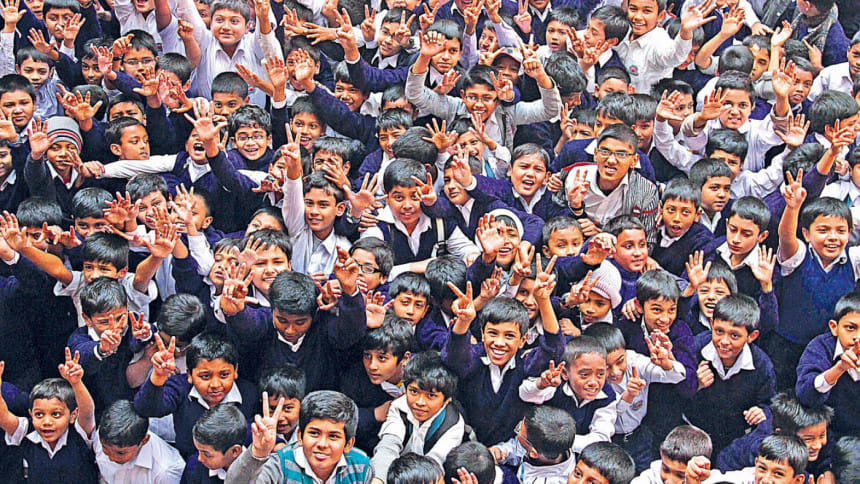
A fifth round of primary school development programme (PEDP5) for the next five years is under consideration by the government and development partners as PEDP4 comes to an end this year. Should we not initiate instead the first universal school education programme (USEP1)?
A roundtable was hosted on May 9 involving government, NGOs, parents and students by the Campaign for Popular Education (CAMPE) on the topic of educational opportunities for out-of-school children. It was reported that compared to about 18 million children enrolled in the primary school stage, at least 10 million children of 6 to 14 years never enrolled in a school or dropped out early without acquiring basic literacy, which severely limited their life opportunities. This phenomenon of children's deprivation of education has been a longstanding feature of primary education even after a compulsory education law was adopted in 1990. The provisions of the law enjoining the obligations of the state and the parents have never been fully implemented.
As a response to this situation, non-formal primary education (one-room, one-teacher community school, free of cost to parents and managed by the sponsor NGO, viz., BRAC) was introduced in the mid-1980s. Through a course of three to four years, the 8 to 14-year-old children completed the equivalent of five years of primary education and a large majority went on to secondary school. The model served the purpose of educating out-of-school children remarkably well. By the mid-1990s there were over a million students, two-thirds girls, served at any one time in over 30,000 single room, non-formal primary schools run by BRAC and smaller NGOs. International donors, impressed by the model's success, funded it, relieving impoverished families of the cost burden.
Donor environment and the government's attitudes shifted by the end of the 1990s. A sub-sector project for primary education was launched in 1997 by the government, which was actually a combination of several separate projects, and was retrospectively called primary education development programme I. As a sequel, and designed more as a coordinated sector (actually, a sub-sector) programme for primary education called PEDPII was begun in 2004. The so-called "sector-wide approach" or SWAP became the buzzword both with donors and the government. One significant characteristic of SWAP was that all international education assistance would be directed to the SWAP and controlled by the government. Thus the NFPE programme of BRAC was largely cut off from donor assistance and the successful NFPE run by NGOs languished due to lack of funding.
In the four rounds of PEDP since 1997 to 2024, some $20 billion (roughly Tk 1,50,000 crore) have been spent. Over 80 percent has been domestic funds from the government. But except for expansion of enrolment and physical facilities, which still remain inadequate, the outcome in learning has been disappointing. Assessment has shown that the majority of children, after five years of primary schooling, do not acquire basic literacy and numeracy at a functional level.
As part of PEDPII (2004-2011), an NFPE type of project called Reaching Out-of-School Children (ROSC), started with a grant from the World Bank. Its management and supervision were kept in the hands of the Directorate of Primary Education, instead of engaging the successful NGOs such as BRAC and others with proven track record to manage the project. Bangladesh Institute of Development Studies (BIDS) in an evaluation in 2014 found that "the project was implemented fully in terms of numbers…. [but] schools were established without taking the need of the community into consideration… and school management and monitoring were also weak in most cases." The outcome, therefore, was disappointing in contrast to NGO-run NFPE.
Under PEDPIII and IV (2011-17 and 2018-24), ignoring the weaknesses and poor outcome of ROSC, a similar government control approach (this time by the Bureau of Non-formal Education - BNFE under the Ministry of Primary and Mass Education) was followed, though the name of the project was now changed to "the second chance" education project. The Covid pandemic led to shutting down the project in 2021. It reopened on a reduced scale in 2023. But its learning outcome and management problems make many sceptical about the project's value and its future.
The round-table organised by CAMPE was an occasion for the project's direct beneficiaries—the students, parents, teachers and BNFE staff—to make a plea for the continuation and accommodation of the second chance in the forthcoming PEDP V, the shape and size of which are to be considered now. Some have expressed their grievances about poor management, corruption, lack of transparency and accountability, and a lack of motivation and responsibility among personnel, which led to disappointing results.
At least some of the speakers (including myself) argued for basic re-thinking than just accommodating in PEDP V the current model of "second chance," which with its present management structure has not worked very well. The relevance and value of a fifth round of primary education development up to class V in government primary schools itself need to be rethought, some speakers pleaded.
Basic questions arise if this line of rethinking is pursued. Is a subsector programme up to class V meaningful, when the SDG4 goal is for achieving quality, equity and inclusion (pre-primary, primary and in secondary education) for all children by 2030? Moreover, how can we reconcile the aspiration of an upper middle-income country by 2031 and a developed country by 2041, keeping large proportions of children and youth deprived of education up to secondary level? Where is the time-bound plan for universal secondary education in Bangladesh, consistent with the aim of smart Bangladesh and skilled youth?
In this context, how rational is the reported government decision to proceed with a plan for extending primary education up to class VIII by introducing class VI to VIII in primary schools? Presumably, the Directorate of Primary Education would take control of junior secondary schools which offer lessons up to class VIII.
Two observations are pertinent here. Primary education up to class VIII as a compulsory and universal stage of education is a 50-year-old idea broached first in 1974 Qudrat-e-Khuda Commission report and reiterated in Education Policy 2010. But in all these years this goal has not been implemented. This plan is now outmoded and irrelevant, when universal secondary level school education is the worldwide norm and an imperative for Bangladesh's human development needs.
Secondly, repackaging the old plan of primary education up to class VIII is designed to fit the existing bureaucratic structure of two ministries for school education, rather than reshaping the organisational structure to meet the need of the programme. In other words, why shouldn't all school education, K-12, be brought under one ministerial jurisdiction, like everywhere else in the world? Thus, a coordinated and holistic school education development can be carried out. A turf battle between the two ministries have thwarted the implementation of universal education up to class VIII.
Coming back to the decision about extending primary level to class VIII, there are good technical reasons for not putting classes VI to VIII into primary schools. The nature of learning content and pedagogy begins to diverge from class VI onward from the primary level up to class V. At this level, the focus is on foundational skills of language and math which all primary teachers are expected to handle. From class VI onward, the learning content is divided into subjects and disciplines which require specifically trained teachers for these subjects. It will be impractical and expensive to try to provide for these additional teachers in primary schools if classes VI to VIII are inserted there. Indeed, this has been a problem in some 700 primary schools where the higher "primary" classes were introduced a few years ago. These schools are struggling to provide a credible educational experience to their students in the higher classes.
What is a pedagogically sound and logistically pragmatic way forward? First, school education should come under one ministerial jurisdiction so that a coordinated and total school development programme is undertaken. Secondly, the primary level up to class V with its distinctive features of foundational focus on literacy in the national language and the four arithmetic functions should be retained. Classes VI to XII should be regarded as the secondary stage with appropriate subject and discipline-based provisions for teachers and learning facilities. We need to design and implement the first Universal School Education Programme (USEP I). A step-by-step time bound plan needs to be prepared for high quality school education for all children in all localities of the country, so that no child is deprived of school education of acceptable quality.
Dr Manzoor Ahmed is emeritus professor at BRAC University, chair of Bangladesh ECD Network, adviser to the CAMPE Council and Associate Editor of the International Journal of Educational Development.
Views expressed in this article are the author's own.
We welcome your contributions and analysis of global events, and responses to our articles. To submit articles to Geopolitical Insights, please send an email to [email protected].
Follow The Daily Star Opinion on Facebook for the latest opinions, commentaries and analyses by experts and professionals. To contribute your article or letter to The Daily Star Opinion, see our guidelines for submission.

 For all latest news, follow The Daily Star's Google News channel.
For all latest news, follow The Daily Star's Google News channel. 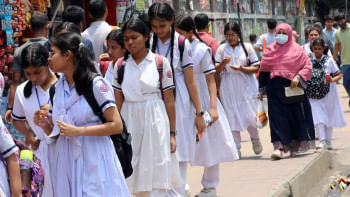
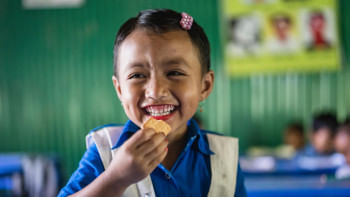
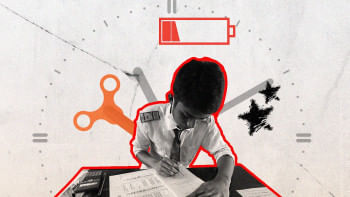


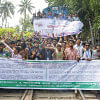






Comments